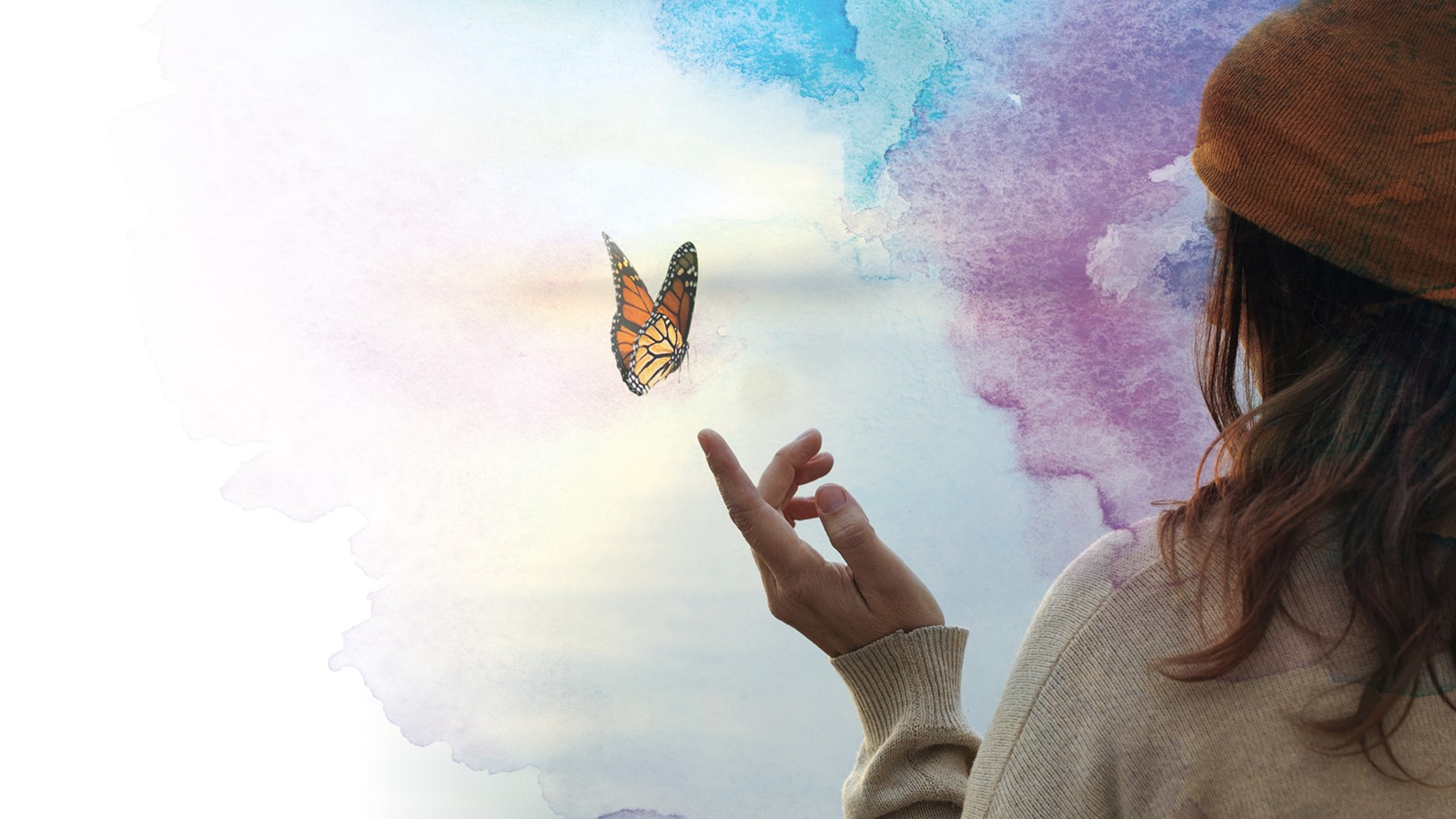Each month of the year has its own character. None more so than January, named after Janus, the Roman God of doors, gates and transitions. Janus is said to dwell on the threshold between the limits of earth and the extremities of heaven: the middle ground between the concrete and abstract dualities of life and death, beginning and end, conflict and peace. In order to gain a better perspective on reality, he has two faces: one to review the past, the other to preview the future. Instinctively at this time of year, I take the opportunity to reflect and put on my Janus faces to pivot between the past and the future. I seek to glean the wisdom from the year gone by and map out priorities for the year ahead.
A pearl of wisdom I gleaned at a BACP Spirituality Network meeting last autumn has stayed with me. One of our regular network participants, Savita Nayyar, shared that her relationship with lockdown was being transformed by reframing and renaming it as ‘resting within’. The process of reframing involves changing your perspective on a given situation to give it a more constructive and beneficial outlook, without denying the challenges involved. This change of perspective is accompanied by the use of alternative language – a renaming process. I have responded to the challenge, reframing my pessimistic perceptions of being ‘locked in’ and ‘shut down’ to a more hopeful outlook. The daily mantra ‘resting within’ has seeped into my way of breathing and moving through the day – like slow radio. Even my Janus view of life has expanded into a richer, multidimensional perspective – not only looking backwards and forwards, but also in and down, up and out, and around and above.
Next in this issue
Reframing life in lockdown as ‘resting within’ has allowed more time for me to reconnect with one of my favourite pursuits: tracing the origins of place names. I grew up in a bilingual culture where street and place names were written in two languages. Knowing the original name and its later anglicised form helped me interpret the historical, cultural and spiritual meaning attached to place names, often occluded or lost in translation. The choice of street names has often been the prerogative of the privileged, commemorating royalty, wealthy philanthropists, military victories. Regime change and protest movements are frequently marked by a change of street name. In June 2020, the world witnessed how an unspectacular section of 16th Street NW in Downtown Washington, DC was reclaimed and renamed Black Lives Matter Plaza. Leading on to Layfayette Square (which was once a slave market) and within view of the White House, the plaza is becoming not only a tourist spot and pilgrimage site, but also a contested and creative space, a fulcrum for the fears and hopes of a nation.
Changes to the place names of our inner cities can give witness to the patterns of migration over centuries and are important to notice. I will always be grateful to the counselling charity I first worked with in Birmingham for organising an intersectionality walk for new counsellors. A key purpose of the walk was to raise our awareness of issues that clients from different cultural backgrounds might present with in therapy. On the walk, we plotted the changes to street names and iconic buildings as well as the locations of worship centres, cultural and support services. We learnt of the challenges faced by different migrant groups to integrate, the sustenance that their spirituality provided and the unique contribution of each group to the flourishing of the city. In the reflexive practice which followed, we interacted with aspects of our own history of privilege and underprivilege and became more aware of unconscious bias in order to identify ways to address hidden prejudice inherent in aspects of our worldviews. This of course is an ongoing process, as Dwight Turner highlights in his excellent article on Race, privilege and supremacy.1
I will finish this ‘resting within’ New Year reflection with a reference to my favourite Scottish place name. ‘Rest and Be Thankful’ is located on what is now the A83 road to the Mull of Kintyre. In centuries past, it was named by drovers and travellers who, exhausted on arrival at the highest point after a long and steep climb, were grateful to rest. In recent years, 10 landslides have rendered life precarious in the area. In adverse circumstances, caused by landslides and lockdowns, we are stretched in our capacity to rest within and cultivate gratitude. If you have found ways to ‘rest and be thankful’ in times of disorientation and disruption, please do share them with us.
References
1 Turner D. Race, privilege and supremacy. Therapy Today 2018; 29(5): 30–33.
